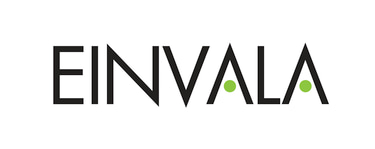CSRD and CSDDD Proposal: Key Changes in Scope, Deadlines, and Reporting Requirements Introduction
3/3/20253 min read


The European Union has proposed significant changes to the Corporate Sustainability Reporting Directive (CSRD) and the Corporate Sustainability Due Diligence Directive (CSDDD), particularly regarding their scope, implementation timelines, and reporting obligations. These changes aim to ease compliance burdens while maintaining ambitious sustainability goals. This article outlines the key proposed changes, what they mean for companies, and how businesses should prepare.
Key Changes to CSRD in 2025
1. Scope Adjustments
The reporting timeline has been extended for certain companies:
Large companies in scope for 2026 reporting now have until 2028 to fully comply with all reporting requirements.
The number of companies directly in scope has been reduced with 80% - Companies in scope now are those with more than 1000 employees, and either a turnover above EUR 50 million or a balance sheet total above EUR 25 million.
The EU Commission provide companies with less than 1000 employees the opportunity for voluntary reporting, leveraging the standard that was developed for SMEs. They will now be able to report voluntarily through the European Financial Reporting Advisory Group (EFRAG).
In addition the net turnover threshold for an undertaking not established in the EU to be subject to the reporting requirements at the group level would be raised from EUR 150 million generated in the Union to EUR 450 million.
2. Reporting Requirements Have Been Simplified
Companies will have fewer mandatory disclosures, particularly in areas that were considered too complex or duplicative. The change is assumed to achieve at least a 25% reduction in administrative burdens, and at least 35% for SMEs.
The double materiality assessment process has been streamlined, reducing the reporting burden.
A more flexible reporting format allows companies to prioritize material ESG factors rather than providing exhaustive data on all categories.
Limited assurance requirements have been extended, with full mandatory external audits now postponed to 2028. Companies will face less strict audit requirements for sustainability disclosures than previously expected.
No sector‑specific standards will be required
3. Digital Reporting Adjustments
While companies still need to report in a machine-readable format, some technical requirements have been postponed.
Integration with the European Single Access Point (ESAP) remains a goal but with a more phased implementation through 2026 and beyond.
Key Changes to CSDDD in 2025
Postponements
Transposition deadline for Member States postponed to 26 July 2027 (previously 2026).
First phase of company compliance postponed to 26 July 2028 (previously 2027).
Key Proposed Amendments
Scope of Due Diligence: Limited to own operations, subsidiaries, and direct (Tier 1) business partners. Indirect partners (Tier 2+) assessed only if there is plausible evidence of adverse impacts.
Financial Services: No future expansion of due diligence to financial services.
Monitoring Frequency: Due diligence effectiveness reviews required every five years instead of annually.
Stakeholder Engagement: Definition of ‘stakeholders’ narrowed, with fewer stages requiring engagement.
Business Relationships: Companies are no longer required to terminate relationships as a last resort but must still suspend when necessary.
Penalties and Civil Liability:
Minimum penalty cap (5% of turnover) removed.
EU-wide civil liability rules removed, leaving enforcement to national laws.
Climate Transition Plan:
Companies no longer required to “put into effect” the plan.
Must instead report on planned and taken actions, aligning with CSRD reporting.
What These Changes Mean for Businesses
For Large Companies in the EU
Less reporting complexity: Companies can focus on core ESG issues rather than disclosing excessive, non-material data.
More time to implement: Extended deadlines provide breathing room for aligning sustainability reporting with business strategy.
Reduced audit pressure: Delayed full assurance requirements mean fewer immediate costs for external verification.
For SMEs Exporting to the EU
Lower immediate compliance risk: Most SMEs remain outside CSRD and CSDDD but must still provide basic ESG data to large buyers.
Easier ESG integration: Less complex reporting by larger clients means supply chain sustainability requests will also be more manageable.
More flexibility in adaptation: SMEs have more time to adjust to indirect sustainability demands from EU partners.
What Should SMEs focus on?
SMEs exporting to the EU should proactively prepare for CSRD and CSDDD changes, even if they are not directly obligated to report. While the 2025 proposed updates have eased compliance burdens, large EU companies will still require sustainability data from their suppliers. SMEs should start collecting key ESG metrics such as carbon footprint, labor conditions, and circular economy practices to meet these expectations. Aligning with simplified reporting frameworks like GRI or ISO 14001 can help ease the transition. Additionally, SMEs should strengthen supply chain due diligence by assessing supplier sustainability risks, ensuring responsible sourcing, and maintaining documentation on social and environmental impact. Engaging with EU buyers to understand their specific reporting needs will be crucial, as failing to provide the required ESG data could lead to supply chain disruptions. Staying informed on future regulatory developments will help SMEs remain competitive and compliant as the EU refines its sustainability requirements.
Conclusion
The 2025 updates to CSRD and CSDDD provide a more practical and phased approach to sustainability reporting. While maintaining strong ESG commitments, the EU has adjusted these regulations to be more manageable for businesses, especially SMEs and companies new to sustainability compliance. By focusing on core material disclosures and aligning with new deadlines, companies can ensure smooth adaptation to these evolving regulatory landscapes.
